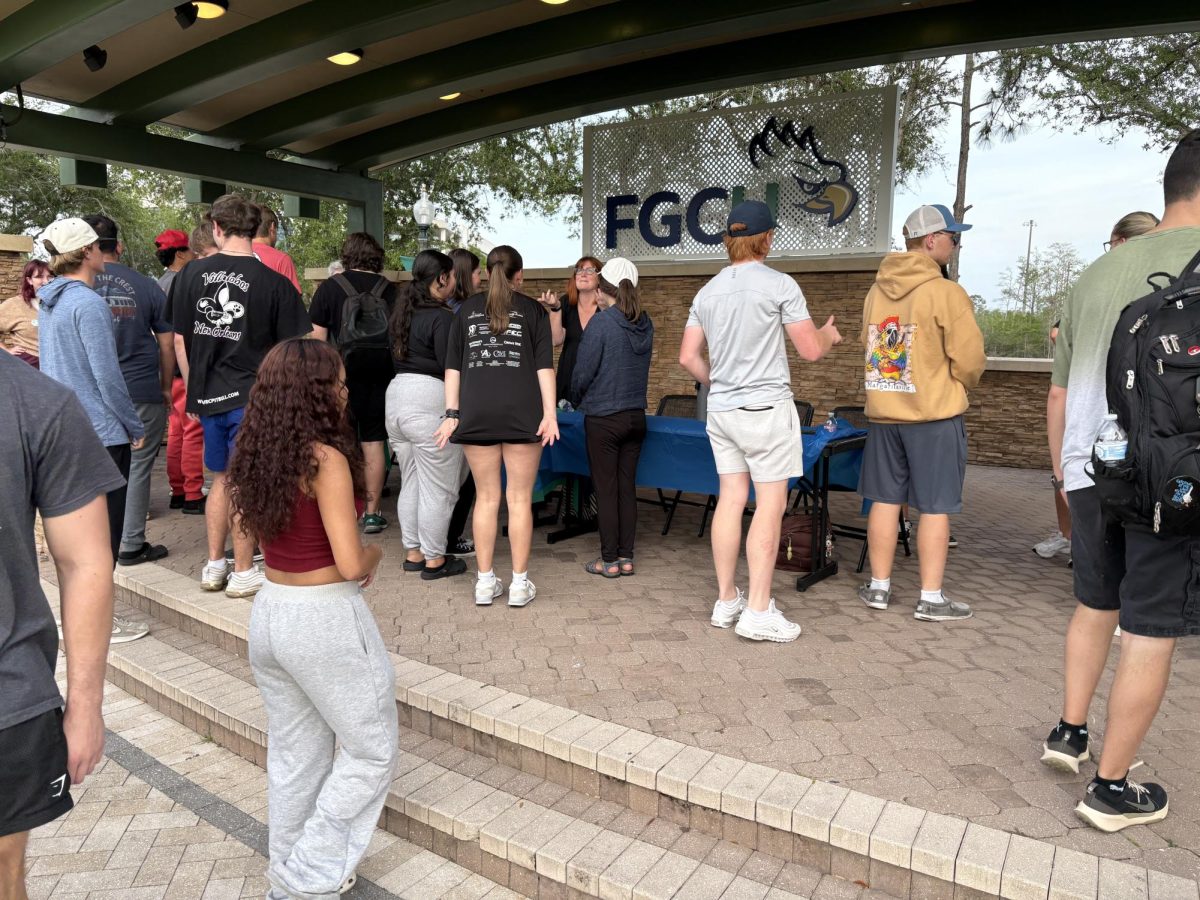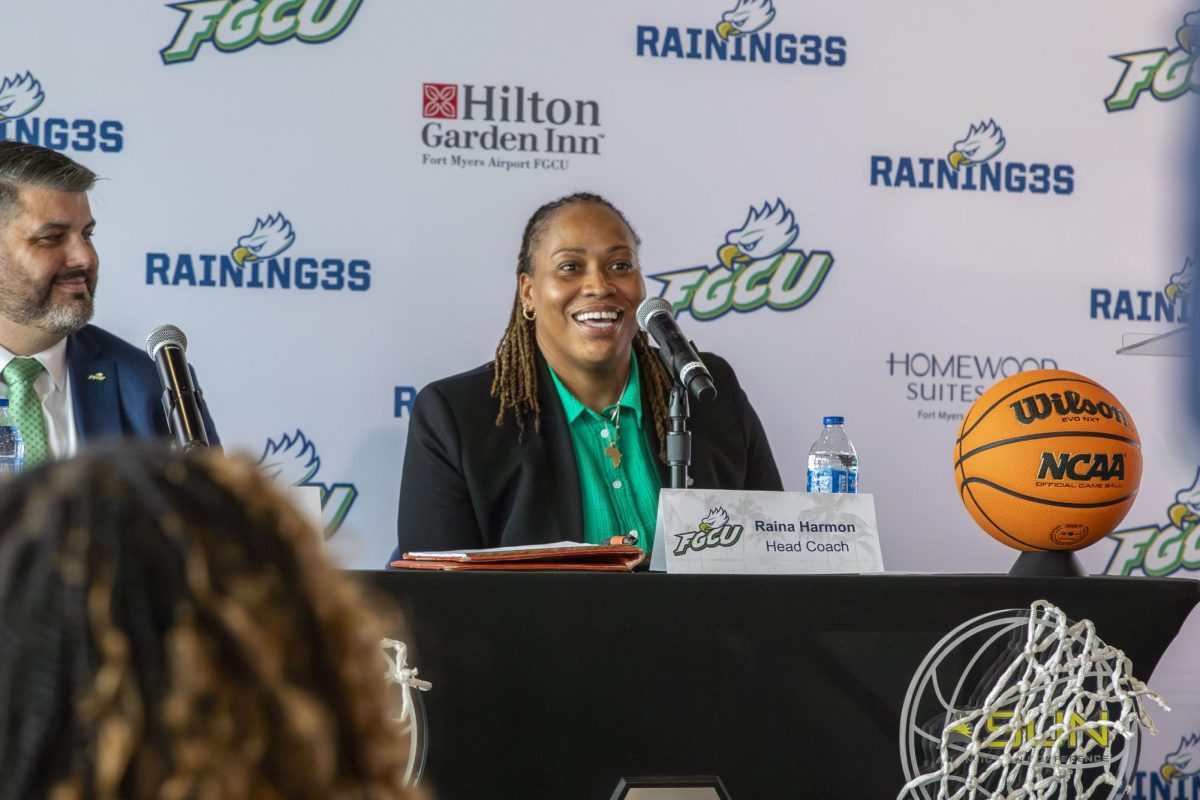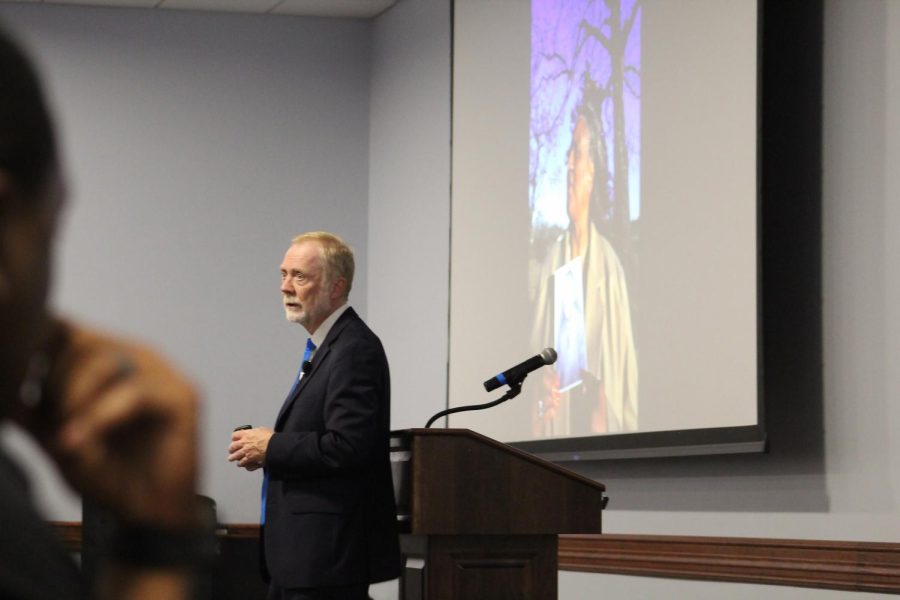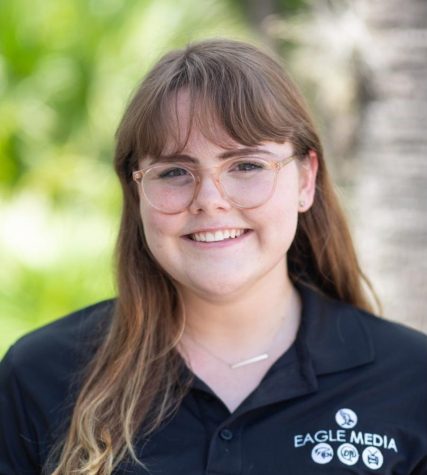Civil Rights Investigative Reporter Jerry Mitchell visits FGCU
Reporter Jerry Mitchell speaks at FGCU in the Cohen Center.
February 28, 2022
Investigative Reporter Jerry Mitchell, whose work with Mississippi’s newspaper, The Clarion-Ledger led to the arrest of several Klansmen for some of the nation’s notorious crimes, visited FGCU last week for a conversation with students and the community.
Mitchell was a court reporter in 1989 when he was inspired to look into old civil rights cases. His reporting helped put four Klansmen behind bars: Byron De La Beckwith for the 1963 assassination of NAACP leader Medgar Evers, Imperial Wizard Sam Bowers for the fatal bombing of NAACP leader Vernon Dahmer in 1966, Bobby Cherry for the 1963 bombing of a Birmingham church that killed four girls and in 2005, Edgar Ray Killen, for orchestrating the killings of three civil right’s workers.
“I cannot describe some of the anger that there was about the fact that I was writing about this, especially with [Medgar Evers],” Mitchell said. “People were canceling their subscription to the newspaper. I mean, it was pretty ugly, in fact very ugly. My favorite letter to the editor was the guy who said that I can be tarred, feathered and run out of the state of Mississippi.”
As a Christian, Mitchell held his faith close in and outside of the courtroom.
“I don’t think without faith, I would have felt comfortable going to talk to these guys,” Mitchell said. “Just from my perspective, I felt like if they killed me, I just couldn’t go home.”
Mitchell spoke to a News Literacy class about his experience being a journalist in the civil rights era. Later in the day, he joined FGCU in a talk with community members in the Cohen Center. FGCU journalism student Gwen Salata was one of many students who tuned in.
“After his visit, I started thinking about things that are important to me,” Salata said. “There’s a lot of opposing sides to in our culture right now and things that need to be investigated. It started making me think of things I would love to investigate and then write a book about.”
Robert Thomas III, 29, attended the evening event because of a requirement for a civic engagement class.
“This was really a blessing in disguise– that I was able to take this course at this time to hear from Mr. Jerry Mitchell, to hear about champions of investigative journalists who I see as champions of civil rights,” Thomas said.
Mitchell, a recipient of dozens of journalism and civic awards, founded the Mississippi Center for Investigative Reporting in 2018. More recently, he released his book, “Race Against Time: A Reporter Reopens the Unsolved Murder Cases of the Civil Rights Era” in 2020. The book takes readers through historic cases as they reopen with Mitchell’s reporting.
“After Mr. Mitchell spoke in the Cohen Center, I purchased his book, ‘Race Against Time,’” attendee Glenn Miller said. “In an inscription to me, he wrote, ‘I hope this book outrages you and inspires you.’ I hope Mr. Mitchell outraged and inspired FGCU students fortunate enough to have heard him speak.”
Miller is the former president of the Southwest Florida Historical Society. Jim Crow laws ruled in Lee County, just as they ruled in Mississippi, according to Miller.
“The last lynchings in Fort Myers occurred in the mid-1920s,” Miller said. “In the 1960s, local schools were still segregated, as were hospitals and restaurants and seating at spring training baseball games at Terry Park in Fort Myers.”
Miller encourages students to take a look into this history. Thomas found out about Emmett Till and his case after coming across a JET Magazine cover.
“Then you hear the stories that you don’t hear about like Vernon Dahmer,” Thomas said. “It was really refreshing to see that there are still some people who don’t share some of the same attitudes that many of our people have today.”































